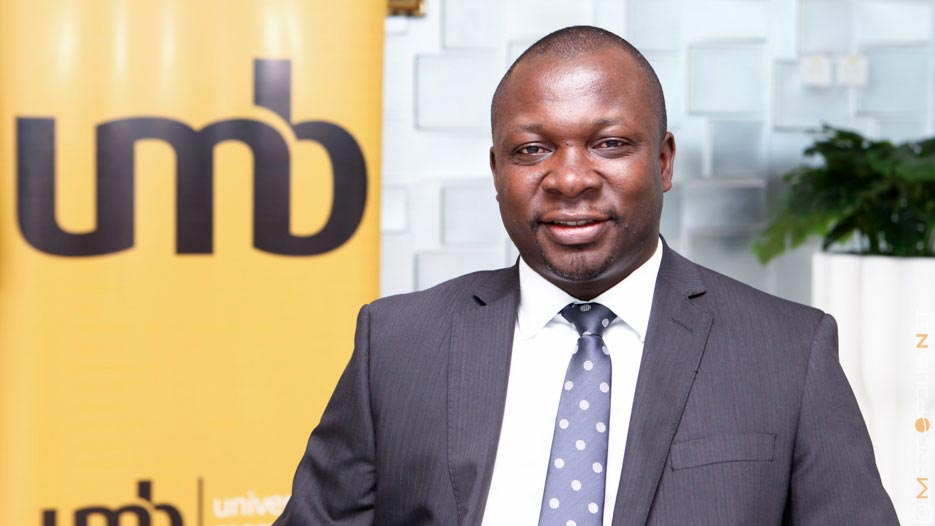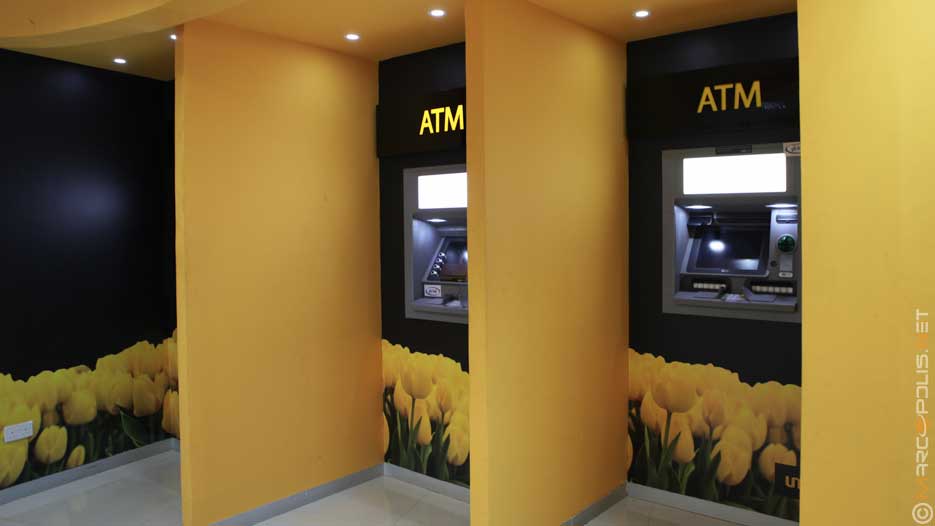Universal Merchant Bank (UMB) to Become One of the Top Banks in Ghana by 2020
John Awuah believes that the future holds many opportunities for the UMB, which is set to move aggressively into the tier one bank quartile by 2020.
Interview with John Awuah, CEO & MD of Universal Merchant Bank (UMB)

Let’s start with the current economic situation; Ghana is expected to receive almost a billion dollars from the IMF program. How would you evaluate the current economic situation in Ghana? In your opinion, is the IMF solution the right one?
I think it is a step in the right direction. It is difficult to say whether it is the right decision or not, but any viable approach to solving the country’s current problems is a positive one. Once they get involved with any country, the IMF brings a lot in terms of helping to re-organise the structure of the economy. We believe that when the IMF is working with various institutions in the country, we will find donors showing a lot more interest in assisting with budgetary support. Also, capital moves to where it is properly welcomed and once again IMF gives that backing of economic policy credibility and that is positive.
Moving on to the banking industry, last year the Bank of Ghana announced total assets accrued more than 42% year on year and the outlook for 2015 was positive. What in your opinion is the performance of the banking sector during the first half of 2015?
It has been quite a challenge given the prevailing economic circumstances and variables that we have had to work with in 2015. Interest rates are significantly high and we believe that the economic environment needs some level of correction to get to levels where banks can operate freely as market participants and can contribute much more than we currently are doing. The first half of the year has been good, but it could have been much better if the economic settings were right.
What about the second half of 2015?
Prospects are good. We have seen some level of stability in the currency. The second half is always structurally and seasonally very good in Ghana. In fact, the second half is always better than the first half of the year. There are prospects for another issue of a euro bond, for which the proceeds will hopefully be coming in during the fourth quarter.
The second half is always structurally and seasonally very good in Ghana. In fact, the second half is always better than the first half of the year.
We are an import dependent economy and we are getting to the latter part of the year with the Christmas festivities and the Muslim religious festivities which boost consumer spend. The import levels are high and the services sector all tend to do much better in the second half. This year in particular, we experienced negative movement in the currency in the first half, but that has now seemingly stabilised to some extent, and we hope that stability will continue. Additionally with the prospects of the IMF second tranche coming in during the course of the third quarter and the cocoa syndicate funding coming in; it can only be a good story for the second half of the year.
Let’s now talk about Universal Merchant Bank (UMB). You opened to the public in March 1972 as the premier merchant bank in Ghana. What have been your major accomplishments?
I would say it has been a great journey from when the bank was initially set up to address the shortfalls in financing for the private sector to where we stand today as a formidable financial institution. Initially it was purely a corporate bank with a limited retail offering. Since then we have migrated into a universal banking business where we are offering a wide breadth of financial solutions. Also, we recently rebranded with a new image and corporate ethos that is resonating well with our customer base.
What is your position within the market?
Depending on what performance criteria you consider, in some respects we are a second tier bank and in other respects we are a third tier bank. We believe that the future holds many opportunities for us and we have set up an agenda to move aggressively into the tier one bank quartile by 2020.

How do you stand out in the Ghanaian banking industry?
We are very much a technology oriented business. Given the direction technology is moving in the financial services space, we see ourselves as a frontrunner, especially when it comes to the use of technology to drive our products. We have also assisted in the country’s drive towards improving financial inclusion. With mobile banking and the cloud services that are available, where we physically do not have a presence, we have still managed to be in a position to serve our customers with cutting edge technology.
Will you be launching any new products or services soon?
Firstly, as we speak, we are changing our core banking application in order to enhance the capacity of our delivery platform so that other surround systems can properly interface with our system to deliver the products that we feel are the products for tomorrow.
Secondly, Ghana is currently experiencing an energy crisis and we believe that this energy problem is an opportunity for businesses to provide products aimed at addressing how the energy crisis affects the every day Ghanaian. We will soon be launching the UMB myEnergy loan where we are partnering with key service providers of non-conventional energy sources, such as solar energy. It is cheap and it works. It has worked in other countries and it has worked in at least one other African country. We believe that with the myEnergy loan we will carry the market with us.
Let´s now briefly discuss your CSR activities. What is UMB’s major contribution to society?
We are a pro education bank and we work with educational orientated NGOs in delivering financial education to our agents. Just last year we partnered with one such institution to deliver laptops to brilliant students who have achieved top West African Exam Council results. We offer scholarships as well. Indeed, when it comes to education, we play quite an important role. For a bank of our size, I think our CSR activity in the education sector is quite noteworthy.
We are also active in CSR activities in the health sector. I was just having a discussion with a team member on the assistance that we plan to provide for the flood and gas explosion disaster that occurred in Accra on June 3. Many of the victims of the gas explosion are still undergoing treatment and require medical supplies to ensure a successful recovery. In response to this need, we launched a relief fund with the number one radio station in the country, Joy FM. The fund is called the UMB and Joy FM Flood Relief Fund and UMB provided the initial seed money for the fund. 100% of the proceeds of the fund will be used to provide necessary medical supplies to the victims of the flood and gas explosion.
Moving on to the last topic, what is your strategy for the bank?
We have 28 branches, and by your next visit in two years we will have 53. We are migrating slowly from being known as a merchant or corporate bank, into being a universal bank with strong Retail presence, where in addition to banking products, we will also sell a wide range of financial products, including brokerage services, bank assurance, gaming tickets, vouchers etc.
To conclude is there any specific message you would have for our audience and any international investors regarding Ghana?
Ghana is a beautiful country with significant prospects. We have a relatively small population of 25 million people and a wealth of resources. With a bit more of a push and the assistance from the IMF and other institutions, it is a country to watch in Africa.
FAIR USE POLICY
This material (including media content) may not be published, broadcasted, rewritten, or redistributed. However, linking directly to the page (including the source, i.e. Marcopolis.net) is permitted and encouraged.